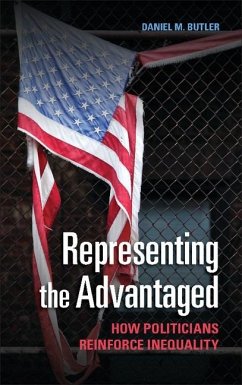Political inequality is a major issue in American politics, with racial minorities and low-income voters receiving less favorable representation. Scholars argue that this political inequality stems largely from differences in political participation and that if all citizens participated equally we would achieve political equality. Daniel M. Butler shows that this common view is incorrect. He uses innovative field and survey experiments involving public officials to show that a significant amount of bias in representation traces its roots to the information, opinions, and attitudes that politicians bring to office and suggests that even if all voters participated equally, there would still be significant levels of bias in American politics because of differences in elite participation. Butler's work provides a new theoretical basis for understanding inequality in American politics and insights into what institutional changes can be used to fix the problem.
Dieser Download kann aus rechtlichen Gründen nur mit Rechnungsadresse in A, B, BG, CY, CZ, D, DK, EW, E, FIN, F, GR, HR, H, IRL, I, LT, L, LR, M, NL, PL, P, R, S, SLO, SK ausgeliefert werden.


